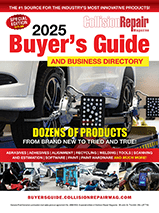- Sixth edition of Mobility Study examines international mobility habits, demands and concerns in wake of COVID-19 pandemic.
- Continental Mobility Study respondents in the U.S. identify as “traditional” drivers: they prefer to be behind the wheel of their own car and are reluctant to relinquish control.
- U.S. drivers desire the latest technologies in vehicles and confidence in automated driving reliability has increased, though skepticism remains.
AUBURN HILLS, Mich.–(BUSINESS WIRE)–#CES2021–Continental’s latest Mobility Study confirms that owning a car is the most important form of transportation for United States residents. The sixth edition of the technology company’s study finds that the majority of U.S. respondents are “traditional” drivers: they prefer to be behind the wheel, in control of their own car. While there is demand among drivers to have the latest technology in their vehicles, the majority of survey respondents still have reservations about fully automated driving.
“While the results of the Mobility Study are not necessarily new findings, the attitude toward private car ownership has seemingly strengthened in response to the ongoing COVID-19 pandemic,” said Robert Lee, president, Continental North America. “In fact, there has been a clear international trend toward private transportation. While it’s growing more prevalent across the world, the U.S. has a particular affinity for traditional driving.”
The study surveyed drivers and non-drivers in the United States, Germany, France, Japan and China. Of the U.S. respondents, 77 percent like to be in the driver’s seat when riding in a vehicle – the second highest total of all countries surveyed. Owning a car is also particularly important in the U.S., with 88 percent of respondents saying they prefer to have their own car to drive.
“Traditional driving doesn’t mean that drivers don’t want technology in their vehicles. We actually see that many drivers want to have new, emerging technology in the car, they just don’t want to relinquish control of their vehicle to it,” explained Lee. “Many people simply aren’t ready for fully automated driving yet. However, a building block approach can help them get there, allowing drivers to get comfortable with advanced driver assistance systems (ADAS) and experience its lifesaving potential in phases.”
The number of skeptics who feel automated driving will never work properly has greatly reduced from 75 percent in 2018 to 52 percent in 2020. And 46 percent of U.S. respondents say they prefer the latest technology in their vehicle, while 32 percent are eagerly awaiting automated driving features – a slight increase from 2018. However, respondents’ belief that automated driving can help prevent vehicle crashes continues to hover right around 50 percent.
“We are encouraged to see a large drop in those who are concerned about automated driving reliability. Most drivers increasingly see the value of safety systems like ADAS, however in the US, they are still slow to accept the idea of a fully automated system. We believe there are a number of reasons for this,” added Lee. “One major factor is a lack of understanding of how ADAS or automated technology works, which can lead to confusion about the benefits and – equally important – limitations of such features. We are committed to helping address this.”
Continental has long been committed to educating the public about the benefits of advanced vehicle safety technology. It is this dedication that led to the creation of Continental’s #SafelyThere initiative, designed to help people better understand ADAS features commonly found on today’s vehicles, increasing trust along the way.
One of the biggest advantages to assisted and automated driving is a reduction in traffic crashes. Today, choices made behind the wheel account for an astounding 94 percent of all traffic crashes. Automated vehicles have the potential to remove human error from the crash equation, which can help protect all road users. Additionally, according to a AAA Foundation study, large-scale deployment of existing ADAS could potentially prevent 29 percent of deaths and about 40 percent of all passenger-vehicle crashes.
The 2020 Mobility Study is the sixth edition of the study completed to gain insights into international feelings on key mobility trends, including automated driving and electric mobility. The 2020 edition took place in two stages with different emphases. The first stage was completed in September 2020 with a focus on electric mobility. Continental partners with the market and social research institute infas to conduct the representative survey of drivers and non-drivers in the United States, Germany, France, Japan and China.
Click here to view more about the 2020 study, and the history of findings dating back to 2011. Learn more about Continental’s leading safety technologies driving the future of mobility during the All-Digital CES 2021 on January 11-14, 2021. Search Continental or any of the following key words, 5G, Artificial Intelligence, Car Audio, Cloud Computing / Data and Vehicle Tech to locate our virtual booth. You can also visit our website, www.continental.com/en-us for more information or to download a press kit.
About Continental
Continental develops pioneering technologies and services for sustainable and connected mobility of people and their goods. Founded in 1871, the technology company offers safe, efficient, intelligent, and affordable solutions for vehicles, machines, traffic and transportation. In 2019, Continental generated sales of €44.5 billion and currently employs more than 233,000 people in 59 countries and markets. In 2021, the company celebrates its 150th anniversary.
Social Media
For the latest Continental news and information, follow us on:
Facebook: Continental USA
Twitter: @ContiPressUSA
LinkedIn: Continental
Press portal: www.continental-press.com
Media center: continental.com/media-center
#SafelyThere Campaign: www.continental.com/safelythere
Contacts
Brianna Blust
Sr. Communications Specialist
Continental, North America
Phone: +1 248-230-0143
Email: Brianna.blust@continental.com
























